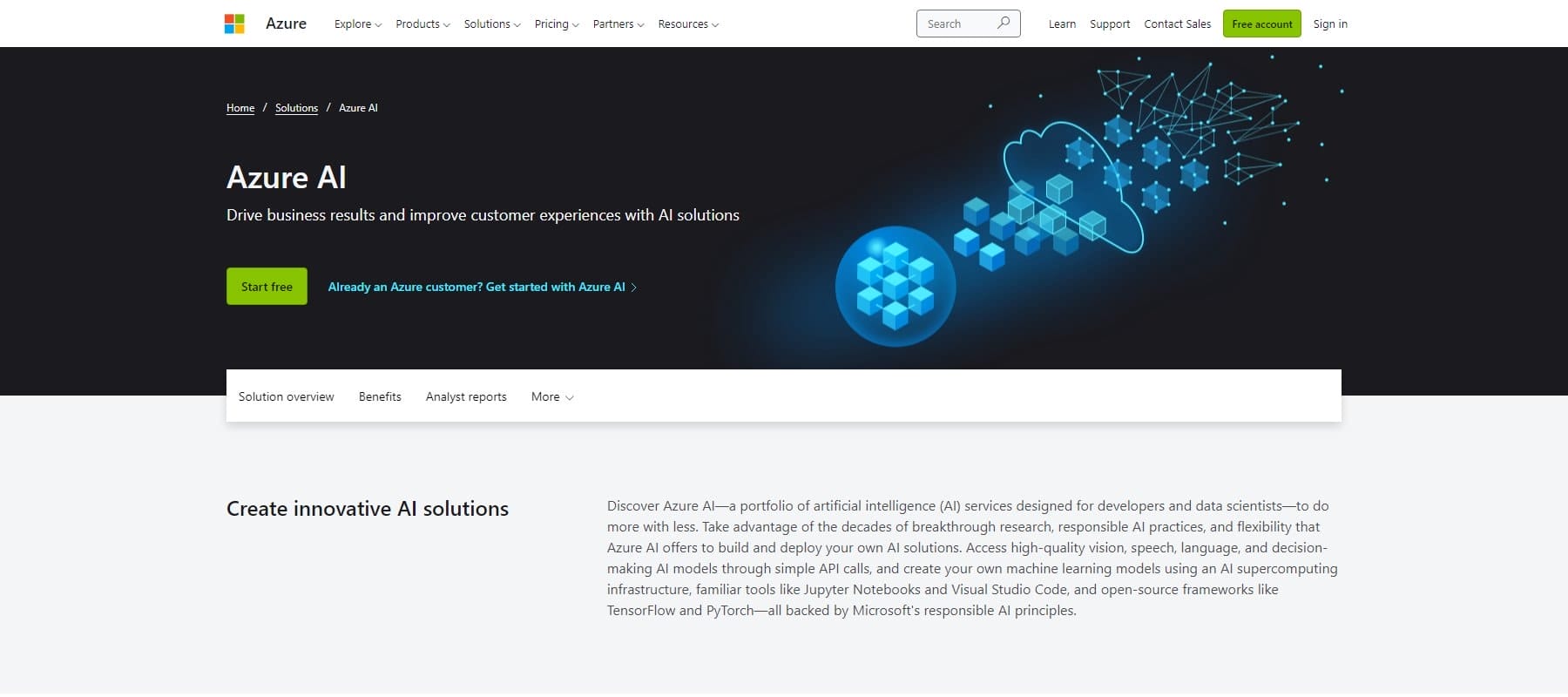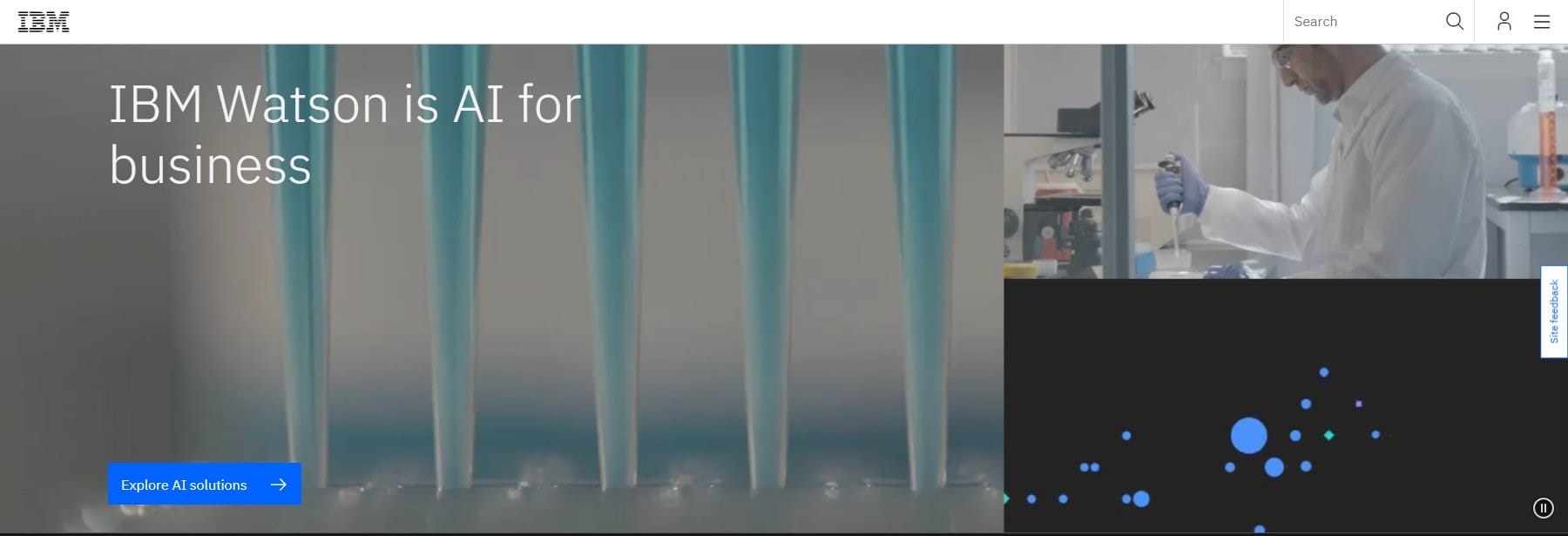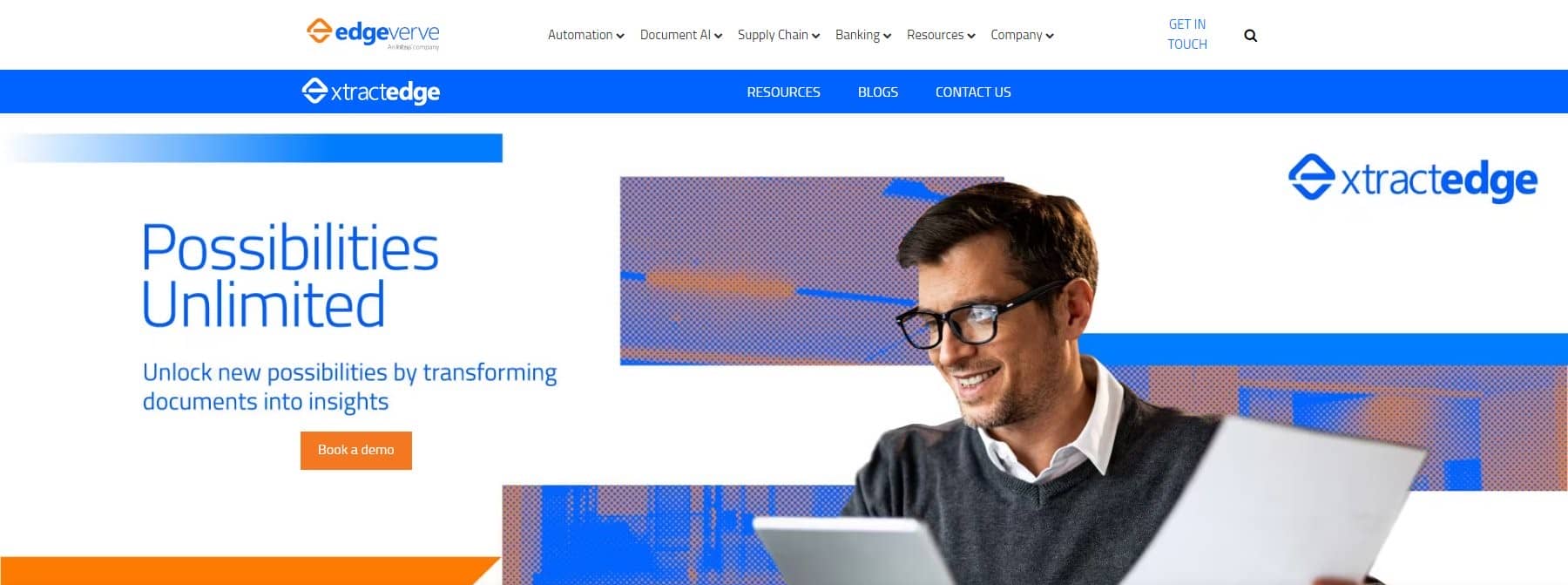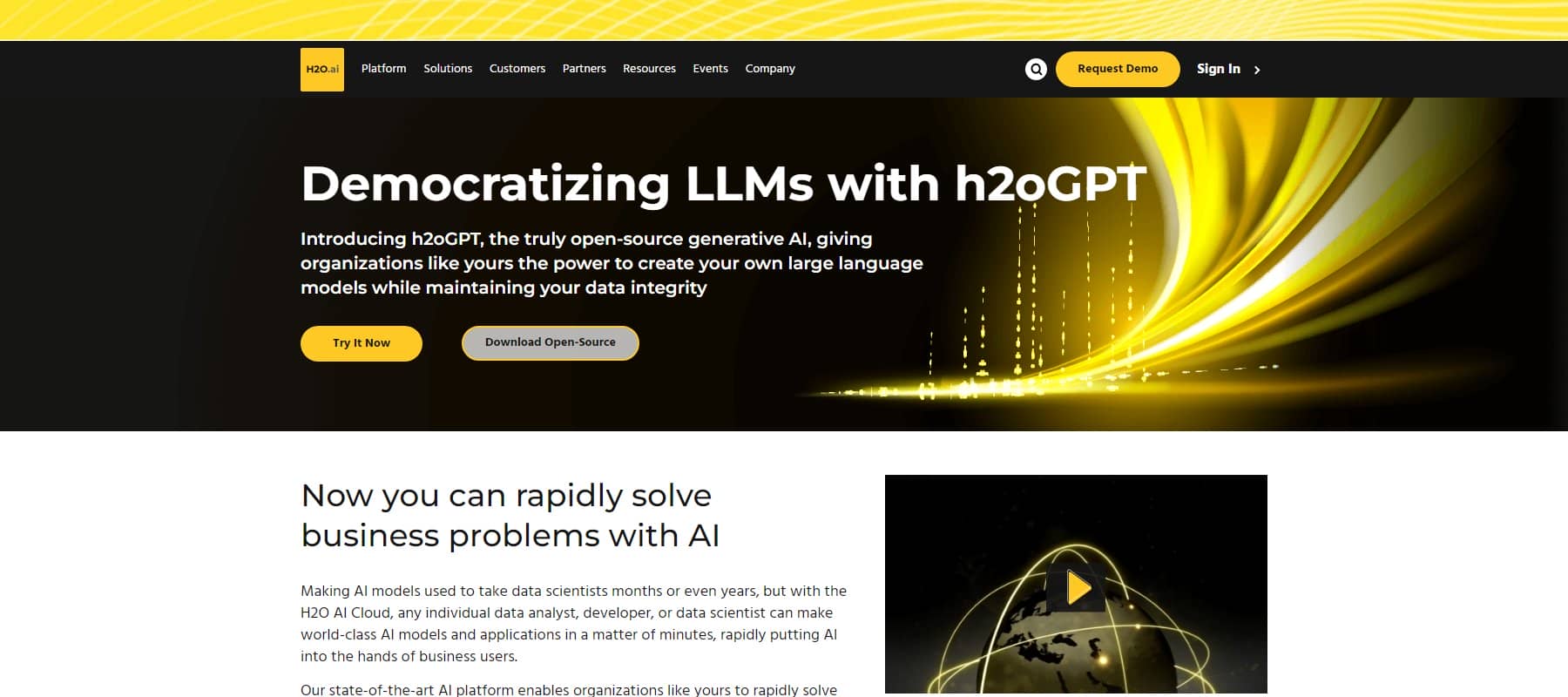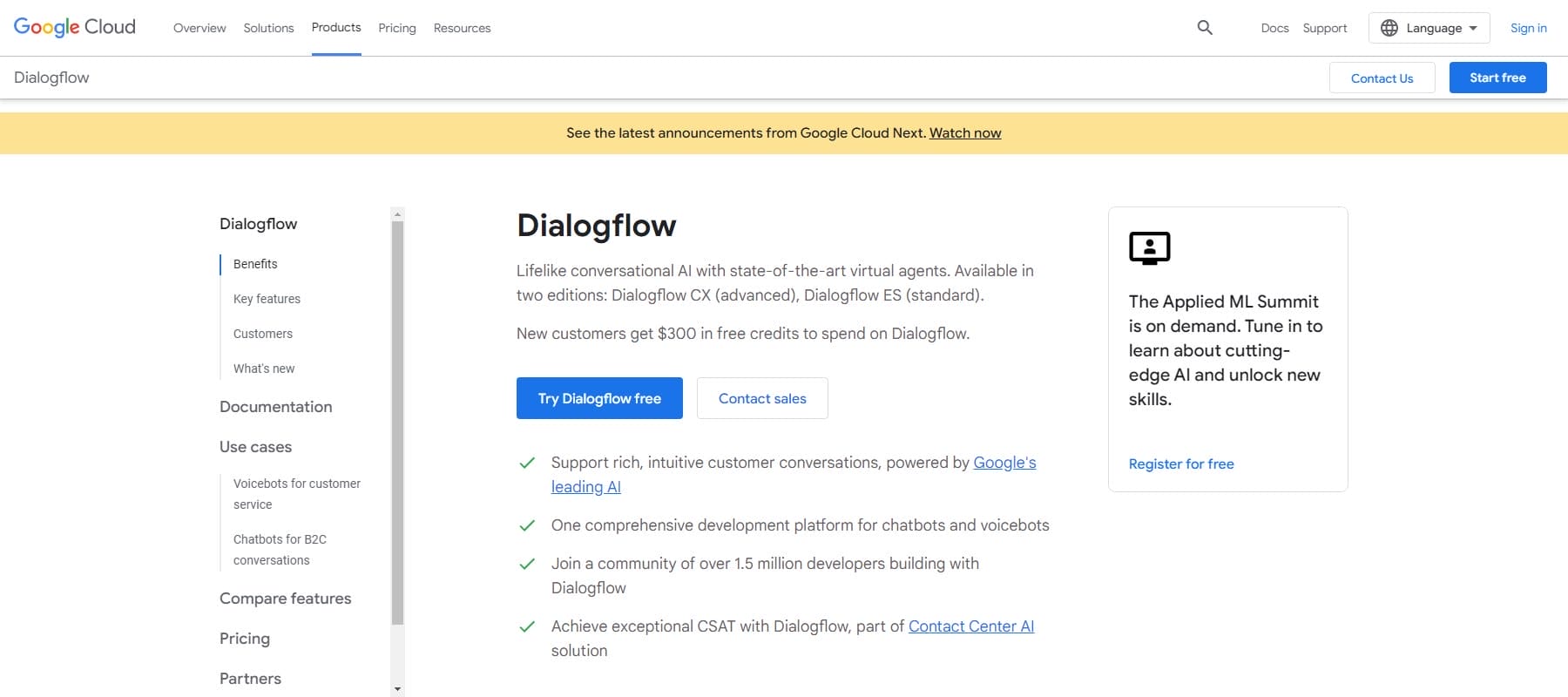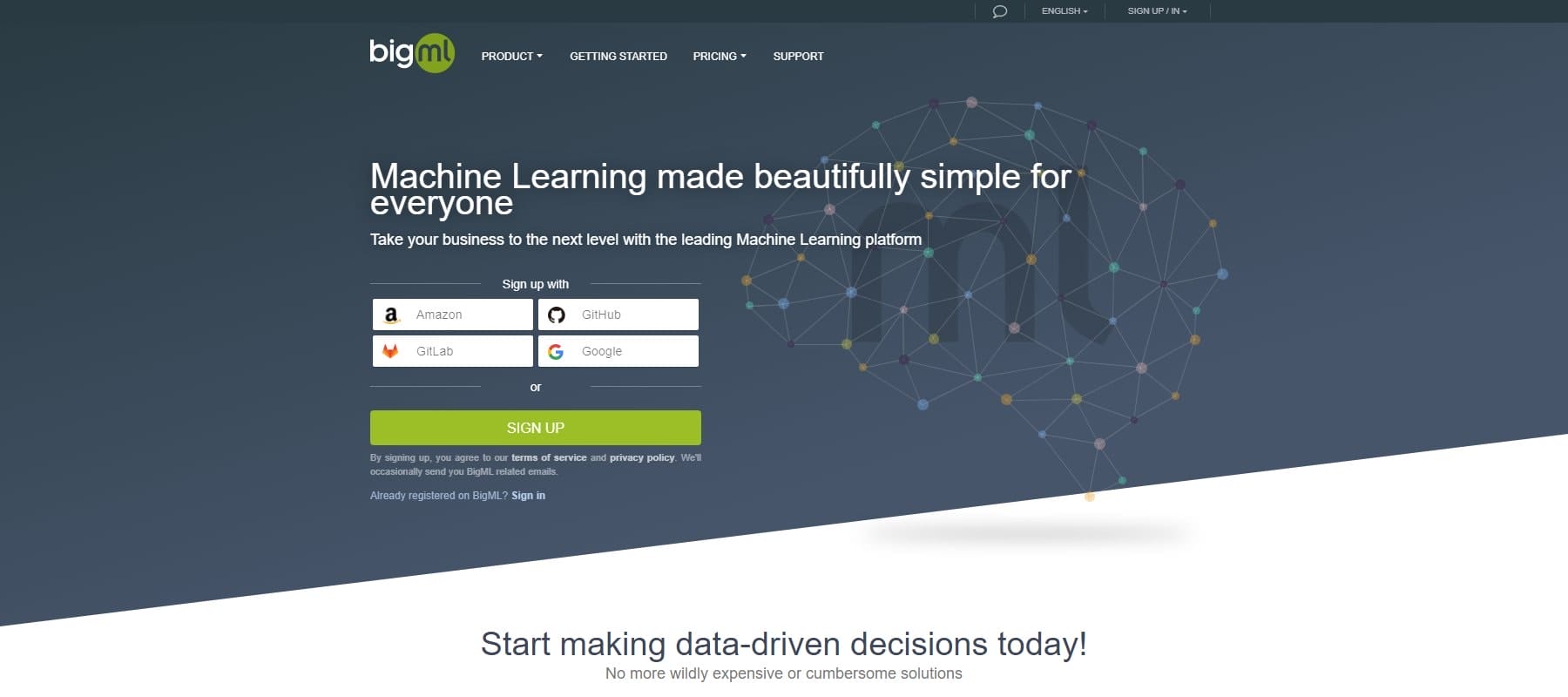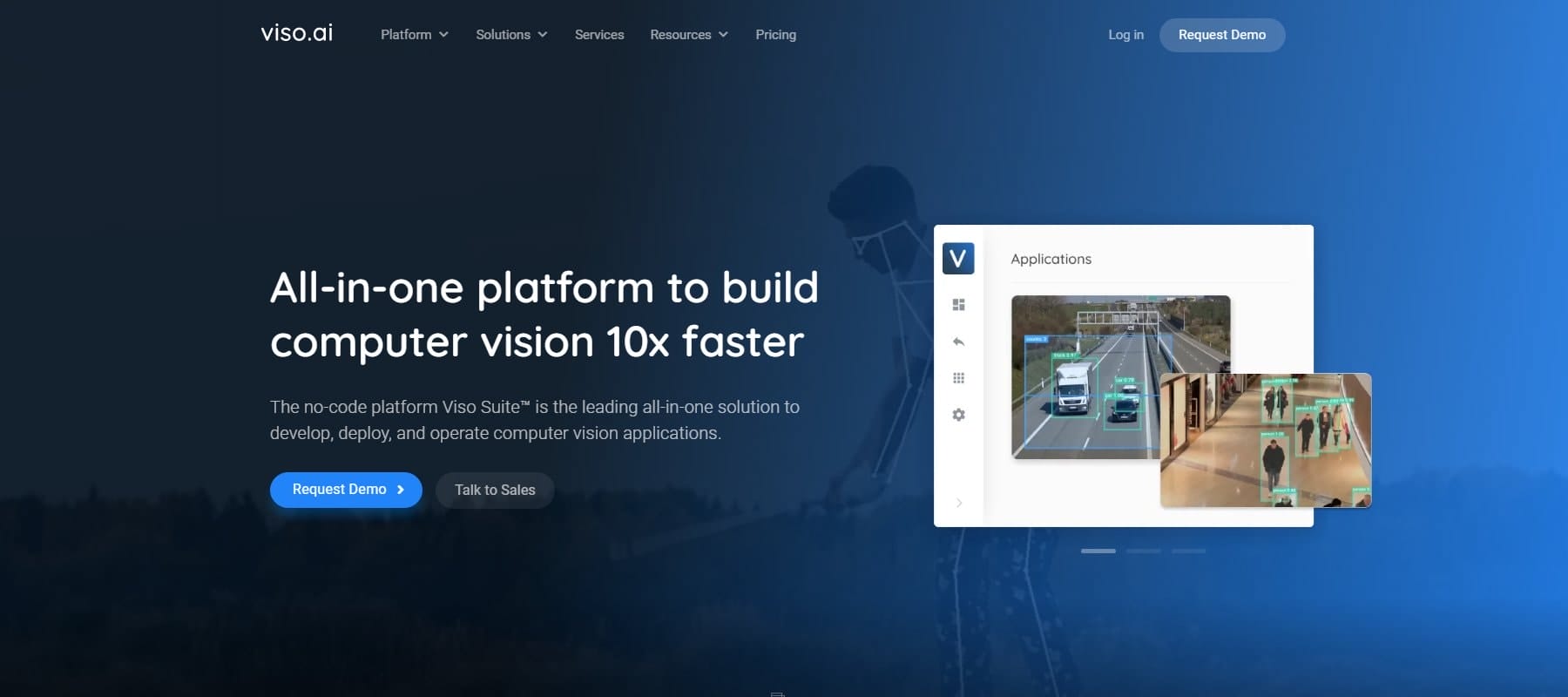ChatGPT is a language model developed by OpenAI that interacts with users conversationally. It allows you to have a human-like conversation with the AI tool, which has the ability “to answer follow-up questions, admit its mistakes, challenge incorrect premises, and reject inappropriate requests.”
Enterprise users can use ChatGPT to brainstorm ideas, create first drafts, generate outlines, email ideas or discuss complex concepts. While ChatGPT offers many benefits, some companies have banned or limited its usage by their employees for compliance reasons and to prevent the release of confidential information. Some of these companies include Amazon, Apple, JP Morgan, Accenture, Verizon, and more.
We recommend using this tool in line with your company’s policies.
Key features
- Responds to natural language queries.
- Conversational abilities.
- Ability to generate codes and can be used to debug codes.
- Ability to create long and short forms of content.
- It has text, audio, and image models.
Pros
- Helps with the user’s research process.
- Available 24/7.
- Fast response time.
Cons
- Potential bias from the data used to train the model.
- It cannot be used as an authoritative source of information.
- Limited accuracy.
Pricing
ChatGPT pricing varies based on your chosen model and prompt.
- GPT-4 8K context prompt cost $0.03 per 1K tokens.
- GPT-4 32K context prompt cost $0.06 per 1K tokens
- GPT-3.5-turbo model costs $0.002 per 1K tokens.
Its image models start from $0.016 per image for 256×256 resolution, 512×512 costs $0.018 per image, and 1024×1024 costs $0.020 per image. The audio model (Whisper) costs $0.006 per minute.
Also see: Generative AI Companies: Top 12 Leaders
![]()
Azure Machine Learning Studio: Best for Data Scientists
Azure Machine Learning Studio is a solution designed to help ML engineers and data scientist train and deploy models and manage the MLOps lifecycle. With this tool, users can create a model in Azure Machine Learning or use a model built from an open-source platform, such as PyTorch, TensorFlow, or scikit-learn.
They can also design and build custom models and algorithms to gain insights from data, deploy them in production, and monitor the models’ analytics results as they evolve. Azure Machine Learning Studio offers several features that simplify data science and machine learning. These include automated machine learning, model management, and interactive visualizations.
Key features
- Data labeling and preparation capability.
- Automated machine learning.
- Drag and drop designer.
- Open-source libraries and frameworks.
- Hybrid and multi-cloud model training and deployment.
- Monitoring and analysis.
Pros
- Users find the drag-and-drop designer beneficial.
- Highly scalable and easy to use.
- Documentation is comprehensive and efficient technical support.
Cons
- Learning curve for new users.
- Some users say the tool is pricey.
Pricing
Azure Machine Learning Studio (classic) pricing is available in two tiers: Free and Standard.
The standard plan costs $9.99 per ML studio workspace per month or $1 per studio experimentation hour.
For the production Web API pricing
- Dev/Test: $0 per month.
- Standard S1: $100.13 per month.
- Standard S2: $1,000.06 per month.
- Standard S3: $9,999.98 per month.
Also see: Generative AI Examples
![]()
DataRobot AI Platform: Best for Predictive Modeling
DataRobot AI platform is an automated, end-to-end platform for developing and deploying AI models. It helps organizations process and analyze data to derive insights. The platform provides tools and resources for data science teams to build, tune, and deploy models. It allows users to explore models from various algorithms to select the best-fit models for their datasets. DataRobot AI platform can be deployed as multi-tenant SaaS, single-tenant SaaS, self-managed VPC and self-managed on-premise.
Key features
- Prepare modeling data.
- Ability to build models.
- Validate and govern models.
- Integration with third-party services like GitHub, Hugging Face, Streamlit, Azure Machine, Amazon SageMaker, mlflow, and Apache Airflow.
- Supported data platforms include Snowflake, Google Cloud Storage, Amazon S3, Amazon Redshift, Google Big Query, Azure Synapse Analytics, SAP, Databricks, and Micro Azure Data Lake.
- Supported business apps and intelligence SAP, Salesforce, Power BI, Tableau and ThoughtSpot.
Pros
- It helps users make business decisions.
- Real-time predictions.
- Service health monitoring.
- Automated compliance documentation.
Cons
- The software is expensive.
- Users may find the platform complex to setup.
- Users say DataRobot model retraining automation could be more flexible.
Pricing
Data Robot doesn’t advertise its solution price on its page. However, they offer two plans: Essential 9.0 and Business Critical 9.0. Publicly available pricing on AWS and Azure marketplace shows that DataRobot AI Cloud Platform Starter Pack (for up to 5 users; standard support), which includes AutoML, Automated Time Series and MLOps, costs $98,000 per year.
On a related topic: The Future of Artificial Intelligence
![]()
Google AI Platform: Best for Research and Training Models
Google AI platform provides many different AI capabilities that enable developers and businesses to build and deploy AI-powered applications and solutions. It offers generative AI solutions based on PaLM LLM, Google Bard, which is a conversational AI chat service that functions like ChatGPT – it can generate text based on queries and is also able to generate code.
Google also offers data science solutions like Vertex AI, AutoML, Spark on Google Cloud and BigQuery ML, as well as responsible AI services.
Key features
- Low-latency serving.
- Data discovery and ingestion.
- Supports TPUs.
- Text-to-speech and speech-to-text capability.
- Contact Center AI service to improve operational efficiency.
Pros
- Large scale training.
- Google TensorFlow product can be used to scale resources across CPUs, GPUs, and Cloud TPUs.
- Easy to train models.
Cons
- Steep learning curve for new users.
- Some users say training and documentation can be improved.
Pricing
Google AI services pricing vary based on your selected solution. Contact Google’s sales team for custom quotes.
On a related topic: What is Generative AI?
![]()
Tidio: Best for Customer Success Teams
Tidio is a live chat and chatbot platform for customer support, sales, and marketing. It allows businesses to communicate with customers and visitors in real time and analyze and optimize their conversations. It offers a suite of features, including automated chatbot responses, integrated messaging apps, AI-based automated responses, and integrations with third-party software.
Key features
- Messenger, Instagram, email integration.
- Live chat conversations.
- Chatbot triggers.
- Analytics capability.
- Native Shopify actions.
- Live chat conversations.
- Offer various chatbots, including sales chatbot templates, FAQ chatbot templates, visual chatbot builders and AI chatbots.
Pros
- Easy to setup and use.
- Allow for real-time communication with customers.
- Mobile apps option.
Cons
- Some users say the tool is pricey.
- AI Chatbots is only available for the Tidio+ plan.
Pricing
Tidio offers various pricing plans, one free and five paid plans.
- Free: No cost for up to three seats, 50 live chat conversations, 100 chatbot triggers and unlimited tickets.
- Starter: $29 per month for up to three seats, 100 live chat conversations, 500 chatbot triggers and unlimited tickets.
- Communicator: $19 per month per seat – for up to three seats, unlimited live chat conversations, 100 chatbot triggers and unlimited tickets.
- Chatbots: Starts from $19 per month for up to three seats, 50 live chat conversations, 1K to 40K chatbot triggers and unlimited tickets.
- Chatbots and communicator (bundle plan): Starts from $19 per month plus $19 per month per seat.
- Tidio+: It’s a personalized plan designed for various enterprise use cases. It starts from $329 per month.
Also see: Top Generative AI Apps and Tools
![]()
Murf AI: Best for Text to Speech
Murf.ai is a text-to-speech artificial intelligence platform that provides high-quality natural-sounding AI voices. It enables users to create voice-over content, podcasts, and more. Murf.ai offers many features, including text-to-speech generation, powerful voice-editing capabilities, and an intuitive web-based interface.
It also provides a range of features and customization options to help users get the most out of their experience. Users can filter their desired voice to a particular age demographic, including young, middle-aged, as well as gender.
Murf AI supports over 20 languages, including English, Russian, Korean, Romanian, Tamil, Finnish, Dutch, Arabic, and Chinese.
Key features
- Has over 20 languages and accents.
- Users can add video, music, or image.
- It allows users to set their desired speed, pitch, emphasis and interjections.
- Customization capability.
- Voices for various purposes, including marketing, author, managers and more.
Pros
- Deletion recovery for enterprise plan.
- High-quality voices.
- Extensive voice options.
- Intuitive and easy to navigate and use user interface.
Cons
- Users say they experience inaccurate pronunciation.
- Users say Murf AI is expensive.
Pricing
Murf AI offers a free plan for up to three users and three paid plans for up to 25 users.
- Free: No cost for up to three users. It includes 10 minutes of voice generation and 10 minutes of transcription with access to all 120+ voices. But it lacks download capability.
- Basic: $29 per user per month, billed monthly or $19 per user per month, billed annually – for up to 10 users. It includes access to 60 basic voices, 10 languages and two hours of voice generation per user per month. Unlimited download is available for this plan.
- Pro: $39 per user per month, billed monthly or $26 per user per month, billed annually – for up to 10 users. It includes access to all 120+ voices, over 20 languages and accents and four hours of voice generation per user per month, plus two hours of transcription per user per month. Unlimited download is available for this plan.
- Enterprise: $99 per user per month, billed annually only. It includes unlimited voice generation, transcription and storage.
On a related topic: The AI Market: An Overview
![]()
H20.ai: Best for Building Custom Generative AI Models
H2O.ai is a leading AI Cloud company with over 10 years of experience providing AI and ML solutions. The company’s goal is to democratize AI and make it accessible to organizations of all sizes. H2O.ai also offers an open source generative AI platform, h2oGPT, which provides tools (H2O LLM Studio, a framework and no-code GUI) for data scientists and developers to build and deploy large language models.
H2O.ai offers several products and services built on top of the H2O platform. Some of their notable offerings include: H2O AI Cloud, which provides comprehensive automated machine learning (autoML) capabilities, H2O-3, built on various algorithms, H2O Driverless AI, which automates some complex data science and machine learning workflows such as feature engineering, model validation, model tuning, model selection, and model deployment, H2O document AI and more.
Key features
- Distributed, in-memory processing.
- AutoML capability.
- Uses various algorithms, including Random Forest, GLM, GBM, XGBoost, GLRM, Word2Vec, for distributed computing and for both supervised and unsupervised techniques.
Pros
- Quality customer support.
- Open source products.
- Promote AI collaboration.
Cons
- Documentation can be improved.
Pricing
H2O.ai doesn’t advertise its rates on its website. They encourage interested buyers to request a demo, and quotes will be sent after the demo based on the buyer’s needs. Publicly available pricing shows that H2O AI Cloud costs $50,000 per unit with a minimum of 4 AI units.
Also see: ChatGPT vs GitHub Copilot
![]()
Fireflies AI: Best Notetaking AI Assistant for Meetings
Fireflies.ai is an AI-powered meeting note-taking platform that automates the process of capturing meeting information, including audio transcripts, text notes, and highlights. It uses machine learning and natural language processing (NLP) to transcribe meeting recordings and provide users with actionable notes to save them hours of manual post-meeting note-taking and follow-up.
Key features
- Chrome extension.
- CRM, Zapier, and Slack integrations.
- Playback speeds: 1x, 1.25x, 1.5x, 1.75x, 2x.
- Users can create meeting clips as soundbites.
- Record Zoom, Google Meet, and MS Teams.
Pros
- Time stamped notes.
- Speaker talk-time analytics.
- Easy to setup and use.
Cons
- Occasionally slow.
- The search capability can be made better.
Pricing
- Free: No cost for up to 800 mins of storage.
- Pro: $10 per seat per month, billed annually or $18 per seat per month, billed monthly.
- Business: $19 per seat per month, billed annually or $29 per seat per month, billed monthly.
- Enterprise: Contact the Fireflies sales team for a custom quote.
Also see: Generative AI Startups
![]()
AWS AI Services: Best for Features
AWS (Amazon Web Services) offers a range of AI services that allow developers to incorporate advanced machine learning capabilities into their applications. Here are the prominent AI services provided by AWS:
AWS computer vision
- Amazon Rekognition: For analyzing images and videos.
- Amazon Lookout for Vision: For detecting defects and automate inspection.
- AWS Panorama: Helps Utilize computer vision at the edge.
Automated data extraction and analysis
- Amazon Textract: Extract text and data.
- Amazon Comprehend: For gathering insights.
- Amazon A2I: For quality control.
Language AI
- Amazon Lex: For building conversational interfaces like chatbots and virtual agents.
- Amazon Transcribe: Transcribe is an automatic speech recognition service that can convert speech into written text.
- Amazon Polly: This service converts text into lifelike speech using advanced deep-learning technologies.
Amazon also offers other AI services like Amazon Kendra, Personalized and Translate to improve customer experience, as well as business metrics services such as Amazon Forecast, Amazon Fraud Detector, and Amazon Lookout for Metrics. DevOps teams can leverage AWS AI service code tools like Amazon DevOps Guru, Amazon CodeGuru Reviewer and Amazon CodeGuru Profiler.
Those looking for industrial AI tools may find Amazon Lookout for Equipment and Amazon Montron beneficial. Healthcare workers can use Amazon Healthlake to store and analyze health data and Amazon Comprehend Medical to extract health data.
Key features
- Integration with Other AWS Services.
- Developer-Friendly APIs.
- Offer pre-trained models.
- Deep learning capabilities.
Pros
- Scalability and flexibility.
- Easy integrations.
- Impressive and broad AI and ML services.
- Excellent training material and documentation.
Cons
- Customer support can be improved.
- Billing can be confusing.
Pricing
AWS AI service pricing depends on your desired solution. To get an idea about how much you may pay for a particular service, you can use the AWS pricing calculator to get an estimate.
Also see: Generative AI Startups
![]()
Jupyter Notebooks: Best for Creating and Sharing Computational Documents
Jupyter Notebooks is an open-source web application that allows you to create and share documents containing code and data. It provides an interactive computing environment where you can combine code execution, data visualization, and textual explanations in a single document.
Jupyter Notebooks are commonly used in data analysis, machine learning, scientific computing, and education.
Key features
- Supports over 40 programming languages, including Scala, Python, Julia, and R.
- Integrates with big data tools like Apache Spark and R.
- Data preparation, exploration and platform data modeling.
Pros
- Easy to use.
- Data visualization capability.
- Users can use this tool to practice Python for data science.
Cons
- The user interface can be improved.
- Users say the tool lags sometimes.
Pricing
Free to install and use.
For more information: AI vs. ML
![]()
Chorus.ai: Best for Client-Facing and Sales Team
Chorus is a conversation intelligence and calls recording solution that helps users analyze all customer engagements across video conferencing, phone calls, and email channels to learn about their performance in the meeting to convert prospects into pay customers.
It provides action items, advanced analytics, custom scoring, conversation tags, and advanced AI-driven insights to help teams modify actions for better customer conversations.
Key features
- Sales call analysis.
- Deal intelligence and pipeline management.
- Snippet tool.
- Automatically join Zoom meetings.
- Talk time percentages.
- Supported languages include German, English, French, Italian, Japanese, Dutch, Portuguese, Spanish, and Chinese (Traditional).
Pros
- Users praise Chorus.ai’s transcript and recorder capabilities.
- Review each speaker’s speech.
- Quality meeting recording.
Cons
- Transcriptions for non-native English speakers can be improved.
- Search functionality can be improved.
Pricing
ZoomInfo, which acquired Chorus.ai, doesn’t publicly advertise its pricing on its website. However, the company pricing page shows that they offer three plans: SalesOS, MarketingOS, and TalentOS. ZoomInfo usually charges based on your required features, functionality, license number, and credit usage.
Publicly available data shows each plan’s base pricing.
- SalesOS: Base platform access, bulk credits and premium features cost $34,995 for 12 months, $69,990 for 24 months, and $104,985 for 36 months.
- MarketingOS: ABM Pro+ access and additional premium add-ons cost $69,995 for 12 months, $139,990 for 24 months, and $209,985 for 36 months.
- OperationsOS: Enrich Premium+, 0-250k records costs $39,000 for 12 months, $78,000 for 24 months, and $117,000 for 36 months.
- TalentOS: Base Platform Access (includes Americas, APAC, and non-GDPR EU Data) costs $15,000 for 12 months, $30,000 for 24 months, and $45,000 for 36 months.
Also see: Cloud and AI Combined: Revolutionizing Tech
AI Software Benefits
AI software offers several benefits to businesses, including:
- Enhanced decision-making: With its ability to evaluate large datasets, enterprise users can gain helpful insights from their AI software. It can identify patterns, trends, and correlations that may not be readily apparent to human analysts, enabling businesses to make data-driven decisions and stay ahead of the competition.
- Cost reduction: Automating tasks and optimizing processes minimizes or eliminates costly errors and the need for manual intervention in various areas, resulting in cost savings for businesses.
- Personalized customer experiences: By analyzing customer data and behavior patterns, you can provide services tailored to your customer’s needs and offer customized customer support. It will boost your retention, loyalty and customer satisfaction rates.
- Workforce augmentation: AI software can augment human capabilities and expertise, leading to a more skilled and efficient workforce. It can assist employees in their tasks, provide real-time guidance and recommendations, and enable them to leverage AI-generated insights effectively. This collaborative approach between humans and AI improves overall business operational performance and ultimately leads to increased revenue.
- Competitive advantage: Companies can gain a competitive edge in the market by leveraging AI tools, from optimizing marketing campaigns to improving sales forecasting and enabling better product development. It allows enterprises to drive innovation and capture the market early with innovations and solid solutions.
How to Choose the Best AI Software
Choosing the best AI software for your company can be challenging, as there are various factors to consider. Here are some steps to help you make an informed decision:
- Identify your business needs; how exactly will you use this software?
- Clearly outline the goals you want to achieve with AI software.
- Assess technical requirements – consider scalability, compatibility with existing infrastructure, programming language support, and data integration capabilities.
- Assess the learning curve for your team and consider the availability of training resources, documentation, and support from the software provider.
- Evaluate customization options to determine whether the AI software can be tailored to your business needs.
- Analyze the algorithmic capabilities – consider whether the software supports deep learning, machine learning, natural language processing, or other AI techniques relevant to your needs.
- Check for data privacy and security.
- Read user reviews and case studies.
- Consider vendor reputation and support.
- Conduct trials and demos.
- Consider the total cost of ownership (TCO).
- Seek expert advice if needed – If you lack in-house expertise, consider consulting with AI experts or engaging a trusted technology advisor who can guide you based on your business needs and industry requirements.
These steps help streamline selecting the best AI tool for your business – endeavor to choose software that aligns with your specific needs, technical capabilities, and long-term goals.
Bottom Line: the Best AI Software
There are thousands of AI software applications and services available, and many more that are being released to the market daily, all built with a simple goal – to automate and simplify complex processes – to help businesses derive better outcomes.
Regardless of your industry, team sizes, functions and technical expertise, there is an AI software solution that can help optimize your current business process. You should use these tools responsibly to protect your enterprise data.
